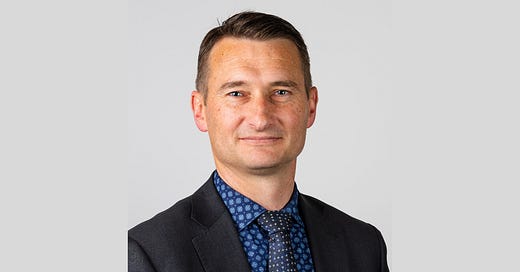CEO warns council at risk over Bluff wastewater delay
“The council not applying and simply running the plant out of consent is an unprecedented position."
Help us keep telling Southland stories by becoming a paid subscriber of The Southland Tribune.
Invercargill City Council’s CEO says there’s a high risk the council will have a non-conforming wastewater treatment plant at Bluff on the back of delays getting a resource consent application sorted.
The Bluff wastewater situation has emerged as the most controversial topic at the council at the moment.
Bluff wastewater is currently treated and then released into Foveaux Strait through a 50m pipe.
However, the consent for that set-up expires in December 2025. It has prompted the council to prepare to apply for a new consent.
Iwi is opposed to the status quo on cultural grounds. It wants an extra step added to the process which would see the wastewater pass through a wetland area before heading out to sea.
On Tuesday the council was expected to confirm the recommended option for the consent process.
However, Mayor Nobby Clark opted to “leave it on the table” wanting to instead wait for further advice from the water regulator in March, 2025.
That prompted some concern from council CEO Michael Day.
Day said leaving the decision to after November this year would mean a high risk of the council having a non-conforming treatment plant at Bluff.
“The council not applying and simply running the plant out of consent is an unprecedented position,” Day said.
Day requested that either a timeframe, of no later than the end of November 2024, be put in place, or the council itself pass a vote, in relation to putting the treatment plant into a non-conforming position.
Mayor Clark said there were “roughly 50 plants” operating on expired consents and as a long as the council was not doing any damage - other than a perceived reputational damage - then there should be no risk.
On the back of the CEOs concerns Cr Lesley Soper suggested the matter be considered before the end of November.
Mayor Clark said he was happy to consider it before the end of November but that did not mean they would make a decision by then.
“I’m happy to review it and get some more information. But it would be remiss of us, in my view, to make a decision which could cost tens of millions of dollars if we don’t have to. November is not the decision-making day,” Clark said.
“It is not the end of the world to run on a consent that has been expired. For those who have been around long enough, you will know Dunedin ran 20 years on one and got no consequences.
“I’m not suggesting we do that, but the decision we make here will lead us into decision at [the Clifton Treatment Plant] that will have multi-million-dollar costs attached to it - some have said in excess of $200m.
“So, we need to be extremely careful that we make the right decisions, otherwise we load up our ratepayers for the future, and I’m not going to do that today.”
At an October 8 infrastructure meeting the council voted in favour of motion which requested iwi representatives provide further detail around the cultural reasonings behind wanting the treated wastewater to go through a wetland area before going to the ocean.
Cr Barry Stewart questioned why that advice had not yet arrived.
“I’m thinking of ratepayers of Invercargill and Bluff here. The difference between [the wastewater options] is very significant and if we can’t get an answer from Te Ao Mārama on why they picked [option] 1F over 1G, I think it’s very responsible,” Stewart said.
Deputy Mayor Tom Campbell suggested a public workshop be organised where the councillors could work through the wastewater options outside a restricted meeting format.








This article says more about why we need some much deeper thinking into how four separate councils are adding to the rates burden of the people of the south. Firstly staff at the ICC spend the time any money preparing an RMA application and then the Environment Council staff pick over the application with a fine tooth comb no doubt spending the same amount of time as was spent putting the application together and then they have some hearings and the original application is approved or declined. These layers of bureaucracy only add cost and keep people employed but achieve very little in the big plan. Surely there are acceptable standards that apply so all we should see is council staff putting a proposal to the council that meets those standards and the council either considering the need for further public consultation from affected parties or approving the required changes.
We don't need duplication and any party that wants to be considered should have to put forward their issues in a document that explains exactly what they would want changed to meet their needs.
In the big world picture we are like a pimple on an elephants arse but we seem intent on thinking we are the elephant. London for instance is a city of 15 odd million people on land that is just above sea level yet they dont spend years thinking about issues like we do in the south.
If the sailing ships unloaded people today and said get on building the world as you want we would see most of those onboard still living in tents by the wharf five years later because of the red tape across the road from the harbour.
We need a sewerage system and we need it to be as good as expected under present day standards. That is it in a nutshell.
In my opinion it’s important that this isn’t rushed if all costs and facts are not clear. I would prefer the option that’s less costly to the ratepayer. A significant change could result in a $1000 price hike to my annual rates according to recent news online. Sensible decisions need to be made for the good of every Invercargill ratepayer. A significant increase could be detrimental to many households who already struggle and we shouldn’t make it even more financially challenging for those who own a home. Rates are high enough already.